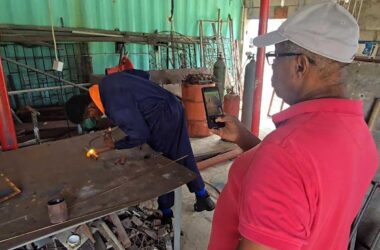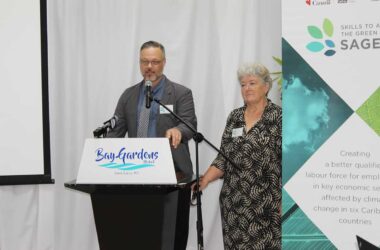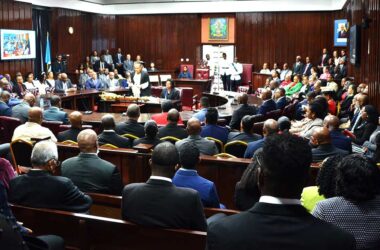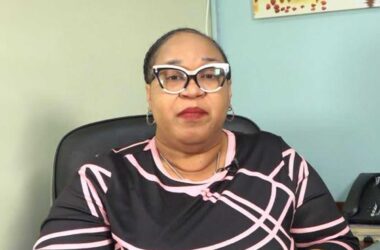![Image of Participants at Thursday’s training workshop. [PHOTO: Rochelle Gonzales]](https://www.thevoiceslu.com/wp-content/uploads/2017/07/Participants-at-Thursdays-training-workshop.jpg)
The one-day workshop was held at the Royal by Rex St. Lucia in Rodney Bay on Thursday morning and facilitated by the Public Affairs Office of the US Embassy and featured American investigative journalist and analyst, Steven Dudley.
The event was held at a time when perhaps needed most, as the island is currently experiencing a rise in violent crimes and homicides.
Thus far, there have been 29 recorded homicides at the halfway point in the year, two homicides short of the total cases recorded last year.
Washington D.C.-based Dudley is the co-director of InSight, a joint initiative of American University and the Fundación Ideas para la Paz in Colombia, which is aimed at monitoring, analyzing and investigating organized crime in the Americas.
The workshop centred on how journalists should and could cover organised crime and violence in St. Lucia without getting themselves in trouble.
He said: “The idea was to give reporters a deeper understanding of the dynamics around crime and violence, and give them some new tools, if you will, to cover in particular organised crime and violence, which can be incredibly dangerous, but very important to understand.”
Some of the valuable advice ranged from the very basic to the clever and intricate. Included in the advice given was the important message of vigilance. Dudley stressed that it is important for journalists to avoid being martyrs by thinking carefully about the case they are working on.
He said one needs to assess whether they have the right amount of support before taking up a story, and if your instincts tell you that there is not enough support, then the story should be left alone.
Journalists, he said, need to know how to interpret the news as opposed to simply regurgitating the facts. The way in which this can be done is by adding value and data to reports as this allows benchmarks for the authorities to be evaluated, highlights criminal dynamics (where most crimes occur, what is the common weapon used, who commits them and who the victims are) and, finally, helps authorities as well as the nation to establish priorities, so that more is known about prospective perpetrators and victims, thus leading to more effective crime prevention.
Dudley also gave helpful tips for constructing crime reports. One of those tips involves referring to past cases of similar nature and compiling them into one report to paint a picture of how crime dynamics have changed and whether there has been an improvement or deterioration of crime response over the years.
Other tips included the use of graphs and charts to illustrate dynamics and statistics, as well as the use of transition words and phrases for smoother crossover sentences.
Jeff Barrus, Deputy Public Affairs Officer at the US Embassy, said his unit works very closely with journalists around the region to help support and strengthen the profession across all the islands.
Barrus said: “Where crime reporting is concerned, there are many different ways it can be approached; there is no single right or wrong way, and that’s kind of what he teaches, too. He’s [Dudley] just looking to kind of push journalists to add one more bit of value to their reporting.”
The current state of under-resourced or small newsrooms prevent reporters from adding layers of value to their reporting, Dudley said.
The workshop was attended by 14 media workers from five media houses, including MBC, DBS, HTS, The VOICE Publishing and The Star Publishing.
















Let’s hope the workshop gave alternatives to producing sometimes gruesome and insensitive photos of victims of crime as seen on online coverage. This shows little regard for the victim and the bereaved. Is it really necessary to show a slumped dead body covered in blood even though the face may be blurred out? How does this help the bereaved? The element of shock no longer deters villains from committing heinous crimes …..and the judicial system certainly isn’t a deterrent.